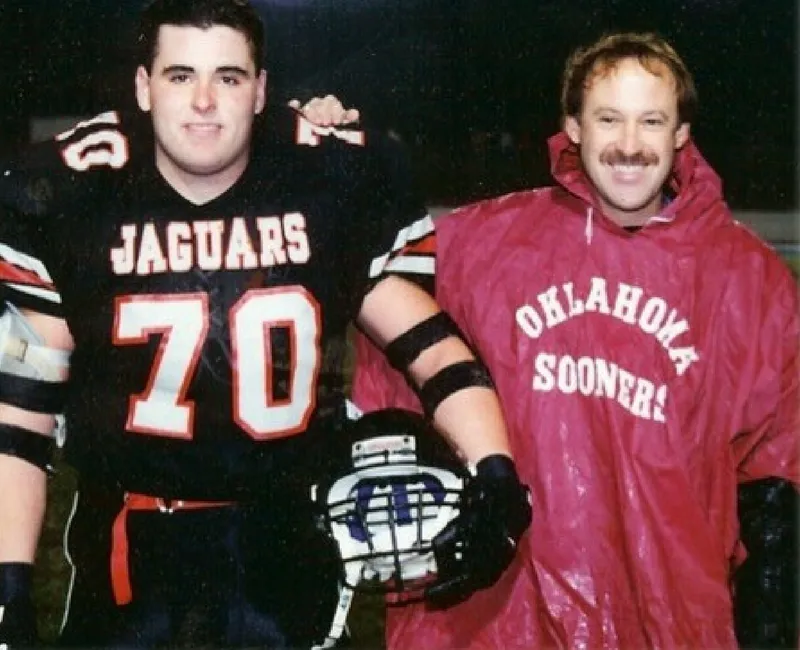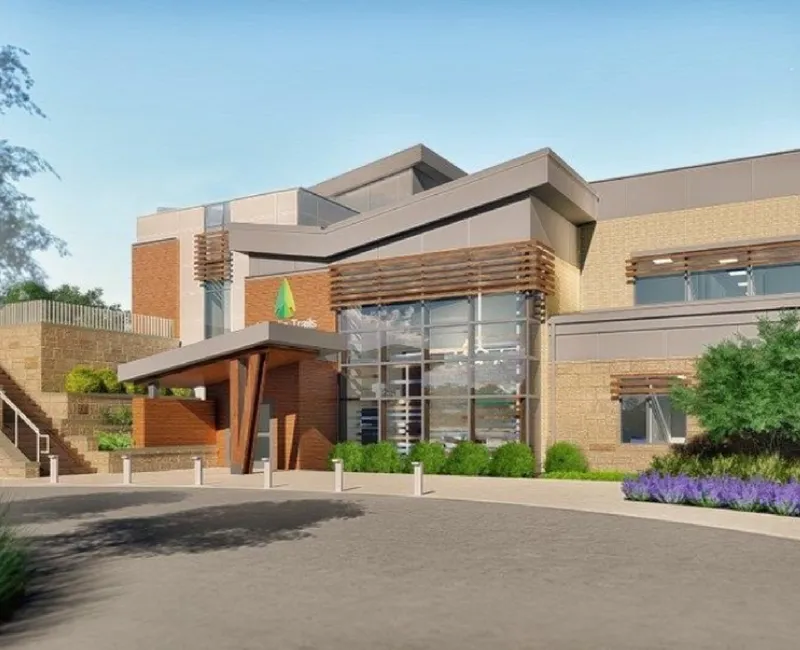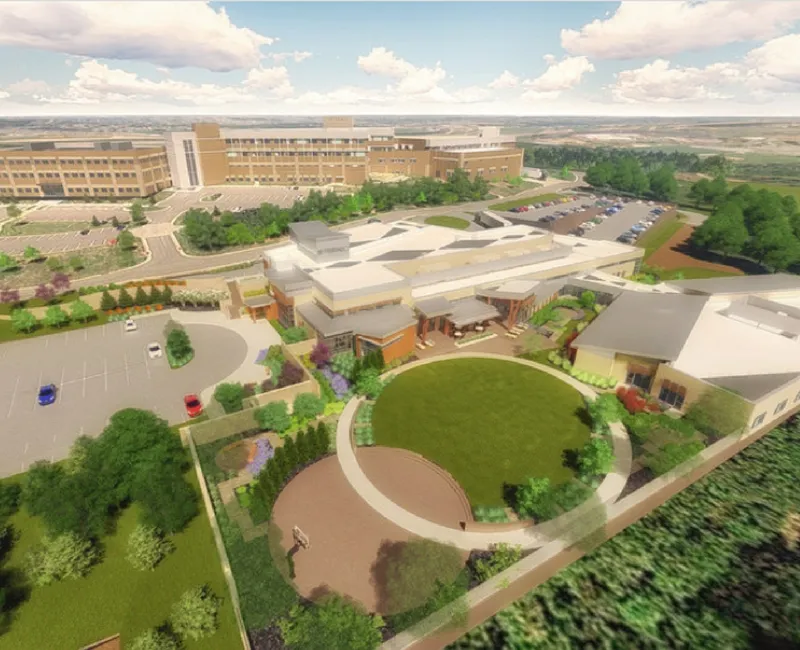Imagine realizing your loved one has an addiction and not knowing where to seek services, or who to turn to in crisis. Many Oklahomans have to uproot and leave their home state to seek recovery. The creation of Arcadia Trails looks to end this problem by providing the best possible treatment right here, in Oklahoma, for Oklahomans.
FATE founder, Reggie Whitten, reflects on his own experience with his son, Brandon Whitten, and shares how unsure he felt when he realized his son was an addict. He explains the struggle of not knowing how to help or what to do. “I truly believe he’d be alive and well, and that I’d be raising his kids today if a center like Arcadia Trails had existed in Oklahoma,” Whitten said.

FATE’s mission to end addiction is a tough goal, which is why the groundbreaking of Arcadia Trails was such a huge step. “This hospital is a vital and monumental step for progress into the future,” Whitten said. “We can solve this addiction problem.”
Oklahomans Coming Together to Help Eliminate a Growing Crisis
Back in 2011, Whitten, alongside three other visionaries, dreamed of creating a facility in Oklahoma to serve those in recovery. These conversations began over one dinner and have since occurred on a regular basis. Throughout the past six years, more and more influential community leaders have come together to work toward making this dream a reality.
“That first dinner was really special. Everyone spoke from the heart,” Kelly Dyer Fry, one of the visionaries working with Whitten to develop Arcadia Trails said. “We realized that we all crossed into each other’s lives for a reason.”
Why the Need for Arcadia Trails?

While there are facilities in Oklahoma that treat addiction, Arcadia Trails will be more research-based, and not just focused on the typical 12-step program. The center will focus on integrated treatment for those who are addicted, have experienced trauma, or have mental health problems. Studies show there is a connection between these three things, and we now know it is best to look at the whole picture when creating a treatment plan.
Finding the Answer to Solve Addiction Effectively
The studies and findings from Dr. Julio Rojas, licensed health service psychologist, regarding the three-part approach to treat addicts has played a huge role in creating the treatment that Arcadia Trails will provide.
“We knew there was a tremendous lack of treatment based on best practices in Oklahoma, and we wanted to focus on a complete, science-based treatment,” Fry said. “We were letting our people down by not having options here in Oklahoma. We were making them move away to receive treatment and then they’d have to move back home and re-assimilate.”
Like people with physical diseases like diabetes, addicts have a disease of the brain. Whitten explains how Americans would never tell a diabetic to just have enough willpower to produce more insulin. Whitten explains how ludicrous it is to tell an addict that same thing.
“There is real genetic and scientific basis we can now see in brain scans,” Whitten said. “It’s a real disease and we must get rid of the stigma. We should make decisions based on data and science, which are in support of treatment.”
About the Center and Treatment

“The old idea is that rehab is something that is dirty,” Whitten said. “Many people hide when they seek treatment. People run and get treatment out of state and that’s wrong. It doesn’t need to be like a leper society. There is help even for the severely addicted. We can cure and treat them.”
Arcadia Trails will be a 40-bed addiction treatment facility and is scheduled to open in spring of 2019. The center will be located right nex t to a hospital that treats people for physical ailments. Whitten is hopeful that other hospitals will see what Arcadia Trails is doing and mimic their practices and their location.
Why Should You Donate to Arcadia Trails?
“I have a unique viewpoint on addiction. I truly believe there isn’t one Oklahoman not affected by addiction,” said Whitten. “Every single family has someone who is struggling with some form of addiction.”
Whitten goes on to explain the prevalence of the stigma and how some families might not even know that someone in their family is struggling.
Even if your family is extraordinarily lucky and is not directly affected by addiction, you should still care about this issue. “Every taxpayer is picking up the tab for this,” said Whitten. “Our prisons are overflowing in costs between $24,000 to $25,000 a year to keep someone in jail, and that’s if they are healthy! If they are unhealthy, we are picking up their medical care too, and prisons are full of addicts.”
Law enforcement and prisons are the biggest items on our state’s budget. We are paying for addictions in a way that doesn’t help solve the problem but only locks someone away. Addicts are being released from jail in an even worse state than when they came in, and the cycle only continues.
“I think it’s a disease that affects all of us,” Whitten said. “It’s incumbent on all of us to give what we can. I’m eternally grateful for INTEGRIS and all the corporations and people who are investing in the state.”
Gaining the funding needed for Arcadia Trails is a statewide initiative. With all the caring people in our state, we need to come together to build this hospital that we desperately need. Whether you can give $10 or $100, or more, we need every Oklahoman to help.
You can learn more about Arcadia Trails and contribute at IntegrisGiving.org.
